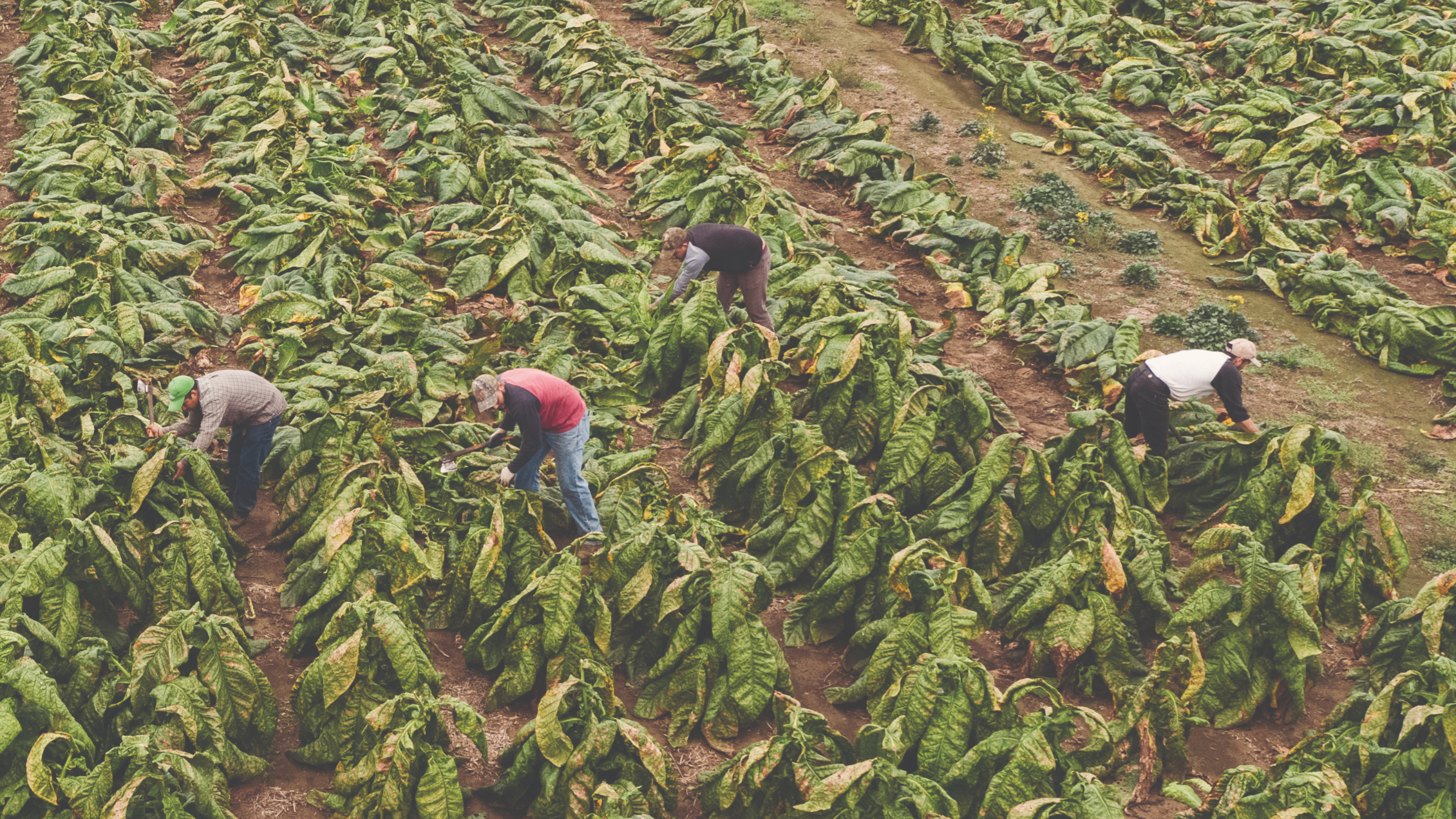Background/Overview
The Issue: Help both farmers and farmworkers in production of labor-intensive crops better understand and comply with applicable labor laws and regulations, and to foster improved practices, where needed, that shape a worker’s experience on the farm. Also to develop a robust, sustainable forum with the resources and tools to identify and build solutions to farm labor practice issues.
The first organizing meeting of the Farm Labor Practices Group (FLPG) occurred on April 18, 2012, in Raleigh, North Carolina, with a subsequent planning meeting held on November 1, 2012. Growing out of an initial discussion about tobacco production in North Carolina, deliberations at the planning meetings focused on key considerations in developing an ongoing dialogue on farm labor practices, identified substantive areas of focus and potential outcomes for the dialogue, explored information needs, and considered needed perspectives. As a result of the planning meetings, the group agreed to launch a multi-stakeholder initiative.
Over time, membership in the FLPG is expected to expand to include additional stakeholders from across the U.S. agricultural industry, government, and non-governmental organizations.
Our Approach
The Farm Labor Practices Group brings together key stakeholders from industry (including growers/farmers, manufacturers and others who sell agricultural products to consumers), government and non-governmental organizations to facilitate constructive dialogue about labor practices in United States agriculture.
The FLPG provides: 1) a facilitated forum for learning from the diverse perspectives of members about labor-related issues affecting farms and farmworkers; 2) an opportunity to deepen mutual understanding and build productive new relationships through informal discussions with other members; 3) an opportunity for members to work collaboratively to address challenges of mutual interest; and 4) a means to offer constructive support to growers and farmworkers through the work products of the FLPG.
The FLPG seeks to identify, consider, prioritize and address issues related to farm labor practices in the U.S., with a focus on labor-intensive crops grown in major tobacco-producing states. These discussions will be wide-ranging and the FLPG will explore opportunities for improving farm labor practices across a broad range of topics. All discussions must fully comply with all applicable anti-trust laws and regulations. The FLPG will seek to avoid divisive political issues while respecting each member’s right to engage in the political discourse as they deem appropriate outside of this group.
Results
Farm Labor Contractors (FLCs) play a significant role in supplying an increasing amount of the labor to U.S. growers. The FLPG is focused on improving FLC performance and compliance and elevating professionalism. FLPG created a guidebook titled Working with Farm Labor Contractors. The FLPG is also exploring effective FLC education and certification programs.
Since 2014, the FLPG, working in concert with GAP Connections, has delivered labor practice training to thousands of growers each year in approximately 15 states. These labor management trainings, as part of a certification process, cover a range of labor practice issues including:
- H-2A Labor Documentation
- Due Diligence When Using an FLC
- What is an H-2ALC?
- Wage Statement
- Worker Safety Training
- Personal Protective Equipment
- Housing Best Practices
- Field Sanitation
- Avoiding Illegal Fees
- Addressing Worker Issues & Concerns
- Communication with workers
- GAP Recordkeeping
Grievance Mechanisms offer workers and growers a way to raise and resolve issues. They are important tools for promoting communication and driving responsibility. The FLPG Grievance Workgroup is designing a grievance mechanism pilot program for consideration of the full membership.
The FLPG has also considered strategies for improving and preserving on-farm health and safety. The COVID-19 pandemic brought to light the need to strengthen and adjust systems to reflect the needs of workers, growers, and their families. FLPG worked with its members to produce personal protection (PPP) equipment to laborers during the height of the pandemic to help increase their safety.







 Login
Login



